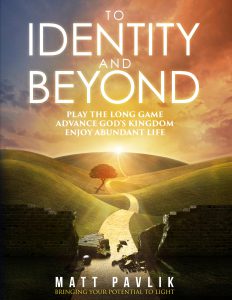Skeletons belong in the ground, not in the closet. Likewise, sin belongs on the cross, not in the heart. It takes courage to properly clean up the mess in our hearts. Everyone is quick to hide their shame and slow to dispose of it.
Who hasn’t miraculously cleaned up a room by shoving all the clutter into the closet? Your guests can enjoy the illusion of a clean home. And you can enjoy your moment of pure genius, at least until a guest opens the door to hang up their coat or attempt to find the bathroom.
Half-Hearted Cleaning Lacks Courage
Closets are for storing junk out of the way, but hearts aren’t supposed to have hidden rooms. Jesus is against tactics that disguise the true state of the heart. Such efforts are especially insidious when the person attempting the beautification project believes that beauty is only skin deep.
“What sorrow awaits you teachers of religious law and you Pharisees. Hypocrites! For you are like whitewashed tombs—beautiful on the outside but filled on the inside with dead people’s bones and all sorts of impurity. Outwardly you look like righteous people, but inwardly your hearts are filled with hypocrisy and lawlessness.”
Matthew 23:27-28 NLT
Cleaning only the outside (being concerned only with appearance) is for non-believers. It’s impossible for a non-believer to clean the inside. That’s Jesus’s point to the Pharisees: they don’t know Him.
God tends to the hearts of those He calls His own (1 Samuel 16:7, Hebrews 12:4-11). God knows about your closet even if you’ve long forgotten about what is inside.
Whole-Hearted Cleaning Requires Courageous Humility
No one has a pure heart, at least not without help. Instead of humbling ourselves by asking for Jesus’s help, we scurry around doing what we can to manage the dirt in our lives. God appreciates our willingness, but I’m sure He must get a chuckle from seeing our attempt. Human cleaning efforts don’t eliminate the dirt; they only rearrange it.
On your own, you lack the power to be perfect. Your best effort can only make the outside look better. But if you are a believer, Jesus can make your heart clean.
To properly bury shame once and for all requires uncovering it. That’s because the antidote to shame is acceptance. All of us desperately need this affirmation of our value because the sins of our hearts only reveal our inadequacies.
To accept anything, you must first see it for what it is. How can anyone overcome shame when they are afraid to look at it? However, even when you can endure the awareness of your shortcomings, more is required than knowing God accepts you if you want to be free of shame.
You will know God’s acceptance has eliminated your shame when you can accept yourself. You can only accept yourself because God accepts you. However, God’s acceptance hasn’t done you any good until you can accept you. If you can’t accept yourself that means you haven’t fully embraced God’s acceptance.
Ask for Courage
If you have courage, pray like this:
Create in me a clean heart, O God, and renew a right spirit within me.
Psalm 51:10 ESV
If you lack the courage to face your shame, ask God for strength. Then look to Him for the antidote.
I sought the Lord, and he answered me; he delivered me from all my fears.
Psalm 34:4-5 NIV
Those who look to him are radiant; their faces are never covered with shame.
All that is left now is to believe God accepts you. If you continue to struggle with this, you might benefit from Christian Identity Therapy to help you gain the courage to make God’s acceptance real in your life.
More help for overcoming shame.
Image by Lothar Dieterich from Pixabay
































